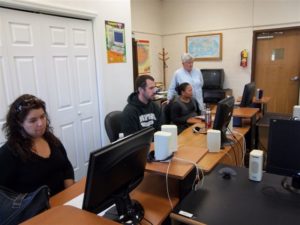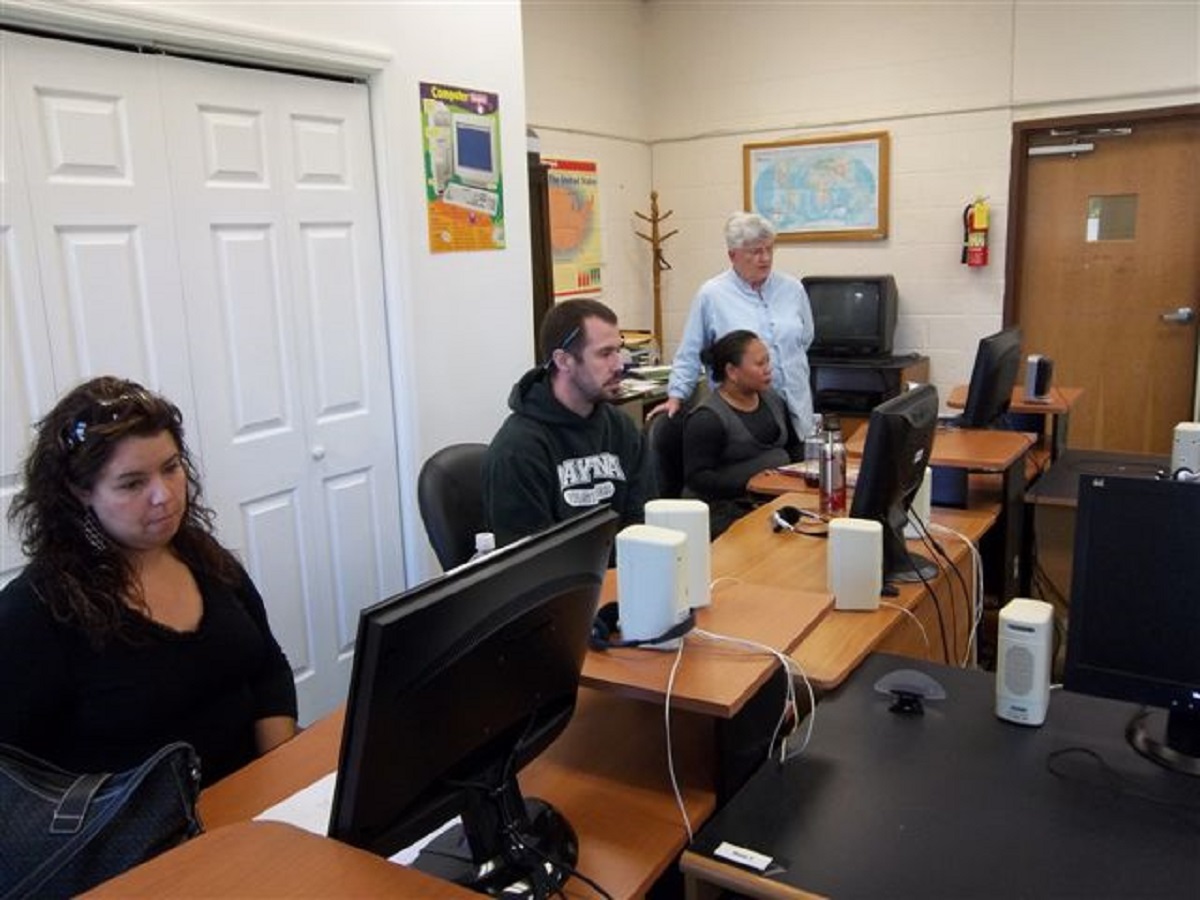Bradford program perseveres after statewide changes

With the statewide restructuring of adult education programs newly completed, the seven 2016-2017 Maryville College Bradford Scholars will experience the remodeled Blount County adult education system alongside adult learners as the Bradford Scholars continue to promote literacy throughout Blount County.
The Maryville College Bradford Scholarship program, in its 22nd year, was named for Tutt Bradford and encourages Bradford Scholars to serve as academic tutors throughout the community.
In the past, Bradford Scholars have frequently tutored in Blount County’s several adult educational venues, created for adults lacking high school diplomas.
“Historically, Blount County has had a strong adult education program,” said Maryville College Director of Community Engagement Amy Gilliland.
Gilliland explained that, before the consolidation, Blount County housed several different venues for adult learners, each containing several teachers and scores of volunteers.
ESOL (English for speakers of other languages) classes were formerly held in area churches that just so happened to be within walking distance from Maryville College’s campus.
“Our students really loved those service sites because they formed little communities, and it was easy for them to walk to,” said Maryville College Campus Minister Rev. Anne Mckee.
Made official on July 1, 2016, Tennessee’s widespread 46 adult education programs were consolidated into eight districts.
Blount County, part of district two, is now grouped with 16 other counties which each have one lead teacher, one para-professional and several part time employees.
Now, all Blount County adult educational programs are taught at Everett Learning Opportunity Center, the former Everett High School and are operating under a new schedule, which has proved to be another obstacle for Bradford Scholars and adult learners to overcome.
“The site will still use the help of Bradford Scholars, but there may be fewer opportunities that work with their schedules,” said McKee.
Byjan Kajaei, Maryville College junior and second year Bradford Scholar, already noticed a scheduling conflict with the new programs.
“How are they getting the word out? I ran into some of my former ESOL students at the grocery store. They asked me when classes started,” said Kajaei. “In fact, classes had already started but the students didn’t know! They had received no notification.”
The statewide restructuring has decreased the number of teachers and venues in Blount County’s adult education program; however, the exact opposite has taken place in counties with formerly weak programs.
“Our county feels like it’s not a good thing,” said Gilliland. “However, this might be great for other counties who previously had small programs.”
Additionally, Tennessee’s adult education program now falls under the Department of Work Force Development instead of the former Department of Education.
“There’s a real change of philosophy there,” said Mckee.
“The focus of the adult education program went from literacy to workforce readiness,” said Gilliland.
These changes have also altered the skill level required of the adult learners. With the focus of the programs on workforce readiness, the participants are required to meet certain literacy standards before they can begin the program.
“Bradford Scholars tutoring in HiSet (the high school equivalency exam) will likely be working with more advanced learners,” said Gilliland. “Instead of working with someone who can barely read, you might be with someone who just needs a little help in algebra.”
Because the new adult education system only became official on the first of July, many county programs are only beginning their work.
“I think it’s too early to tell,” said Gilliland when asked whether or not the new implementations would positively affect Tennessee.
Despite the new atmosphere surrounding adult education, Maryville College Bradford Scholars are still working to promote literacy in Blount County through multiple tutoring venues.

